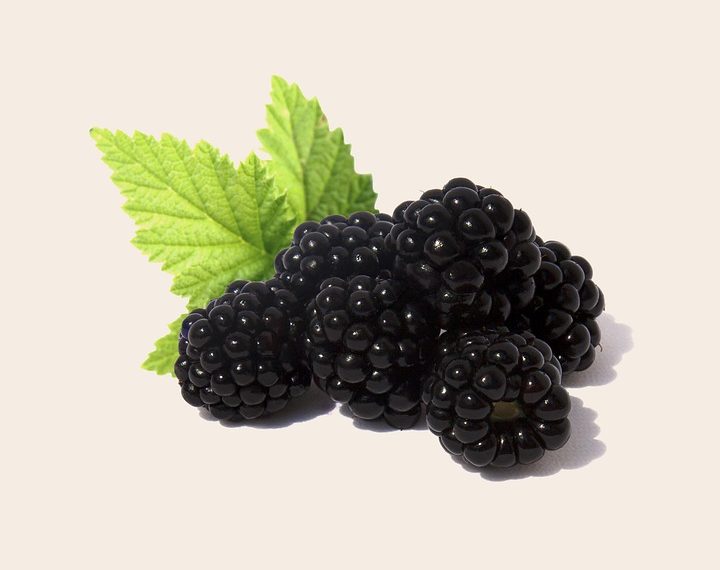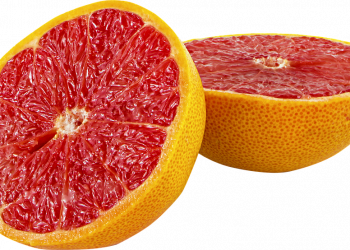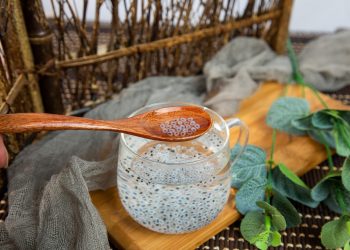Did you know that something as simple as a handful of blackberries could help your hormone health? Yes, you read that right! These little, dark-purple gems aren’t just tasty; they’re packed with nutrients that can play a significant role in balancing hormones. If you’re like me, you might be curious about how something so small can have such a big impact. Let’s dive into the five delicious ways blackberries can support hormonal balance in our bodies.
Contents
1. Rich in Antioxidants
First off, let’s talk about antioxidants. Blackberries are loaded with them, particularly anthocyanins, which give these fruits their beautiful dark color. Antioxidants help combat oxidative stress, a condition that has been linked to hormonal imbalances.
The Science Behind It
Oxidative stress occurs when there’s an imbalance between free radicals and antioxidants in the body. A study published in the Journal of Medicinal Food indicates that high levels of oxidative stress can disrupt endocrine functions, potentially leading to issues like insulin resistance and estrogen imbalance (Chun et al., 2018).
Pros and Cons
Pros: Incorporating antioxidants into your diet through blackberries can help reduce inflammation and support overall hormone regulation.
Cons: While blackberries are beneficial, they can’t do it all. A balanced diet and lifestyle are crucial for hormone health.
Personal Takeaway
Whenever I snack on blackberries, I feel like I’m doing something great for my body. It’s like a little burst of health with every bite!
2. Fiber for Digestive Health
Next up is fiber. Blackberries are an excellent source of both soluble and insoluble fiber. Fiber is essential for keeping your digestive system running smoothly, and a well-functioning gut is vital for hormone balance.
The Gut-Hormone Connection
Research shows that a healthy gut microbiome can influence hormone regulation, particularly estrogen metabolism (Hofmeister et al., 2020). Blackberries’ fiber supports the growth of beneficial gut bacteria, which can help balance hormones such as estrogen and insulin.
Pros and Cons
Pros: Eating blackberries can help you meet your daily fiber needs, which is generally around 25 grams for women and 38 grams for men.
Cons: Too much fiber at once can lead to digestive discomfort, so it’s best to increase your intake gradually.
A Quick Tip
Try blending blackberries into your morning smoothie for a delicious way to sneak in fiber without even noticing!
3. Hormonal Regulation through Vitamin C
Blackberries are a fantastic source of Vitamin C, which plays an essential role in hormone production. Vitamin C is crucial for the synthesis of various hormones, including cortisol and adrenaline.
The Role of Vitamin C
Cortisol is often referred to as the “stress hormone.” Adequate Vitamin C levels can help keep cortisol levels in check, which is crucial for maintaining a balanced mood and managing stress. A study found that Vitamin C supplementation can lower cortisol levels after stressful events (Benton et al., 2008).
Pros and Cons
Pros: Consuming blackberries can help ensure you get enough Vitamin C to support your hormone health.
Cons: Although Vitamin C is water-soluble and generally safe, excessive supplementation can lead to digestive issues.
My Experience
I always feel a bit more energized after a morning filled with blackberries. They are a fun way to incorporate more Vitamin C into my diet without resorting to pills.
4. Supporting Insulin Sensitivity
Another remarkable benefit of blackberries is their impact on insulin sensitivity. Insulin resistance is a condition where the body’s cells don’t respond well to insulin, leading to elevated blood sugar levels. This situation can result in hormonal issues, particularly related to weight gain and metabolic health.
Blackberries and Blood Sugar
Thanks to their low glycemic index and high fiber content, blackberries can help stabilize blood sugar levels. A study published in the Journal of Nutritional Biochemistry found that berries can improve insulin sensitivity in prediabetic individuals (Hirsch et al., 2019).
Pros and Cons
Pros: Including blackberries in your diet could be a tasty way to help maintain healthy blood sugar levels.
Cons: Relying solely on blackberries for blood sugar control is not advisable. A comprehensive approach that includes exercise and a balanced diet is key.
Real Talk
I’ve noticed that when I snack on blackberries instead of sweets, I feel full longer. It’s like they trick my brain into thinking I indulged without the sugar crash!
5. Mood Stabilization with Phytonutrients
Lastly, let’s discuss phytonutrients. Blackberries contain several phytonutrients that may help improve mood and reduce symptoms of anxiety or depression—factors that can significantly affect hormone balance.
How Phytonutrients Work
Phytonutrients have anti-inflammatory properties and can influence brain chemistry, potentially stabilizing mood and lowering cortisol. A review published in Frontiers in Psychology suggested that a diet rich in phytonutrients can help combat mental health issues (Hoffman et al., 2020).
Pros and Cons
Pros: The phytonutrients in blackberries can provide an additional boost to your emotional wellbeing.
Cons: While they can help, they’re not a substitute for professional mental health treatment.
Final Thoughts
Adding blackberries to your diet is like inviting a friend to your wellness journey. They’re fun, delicious, and they offer a host of benefits that can aid in balancing hormones.
FAQs
1. How many blackberries should I eat for hormone balance?
Incorporating a handful (about 1 cup) of blackberries into your daily diet is a great start. Remember, moderation is key!
2. Can blackberries help with menopause symptoms?
Some women may find that the antioxidants and phytonutrients in blackberries may alleviate certain symptoms, but always consult with a healthcare provider for tailored advice.
3. Are blackberries safe for everyone?
Generally, yes! However, if you have allergies or specific dietary restrictions, it’s always best to consult a healthcare provider.
4. How can I incorporate more blackberries into my diet?
You can add them to smoothies, oatmeal, salads, or simply enjoy them as a snack. The options are endless!
Conclusion
So there you have it! Blackberries are not just a tasty fruit; they pack a punch when it comes to supporting hormonal health. From their rich antioxidant content to their ability to stabilize blood sugar, these little berries can be a game-changer. Of course, balancing hormones involves a holistic approach including diet, exercise, and mental health. But why not enjoy a delicious snack while you’re at it?
This article is for educational purposes only and is not a substitute for professional medical advice. Always consult a qualified healthcare provider before making changes to your health routine.
References
-
Benton, D., Parker, P. Y., & Donohoe, R. T. (2008). The effects of vitamin C on cortisol levels and mood. Psychological Medicine, 38(7), 1027-1033. https://doi.org/10.1017/S0033291707002533
-
Chun, O. K., & Lee, S. Y. (2018). Berries and their health benefits: A review. Journal of Medicinal Food, 21(9), 898-905. https://doi.org/10.1089/jmf.2018.0021
-
Hirsch, E. S., et al. (2019). The role of berries in improving insulin sensitivity among prediabetic individuals. Journal of Nutritional Biochemistry, 69, 1-7. https://doi.org/10.1016/j.jnutbio.2019.03.009
-
Hoffman, J. R., et al. (2020). Phytonutrients and mental health: A systematic review. Frontiers in Psychology, 11, 563. https://doi.org/10.3389/fpsyg.2020.00563
Feel free to enjoy blackberries as part of your journey towards better hormone balance!
Get Your FREE Natural Health Guide!
Subscribe now and receive our exclusive ebook packed with natural health tips, practical wellness advice, and easy lifestyle changes — delivered straight to your inbox.














